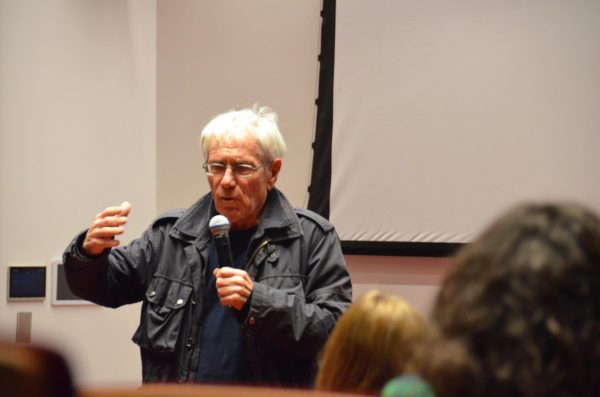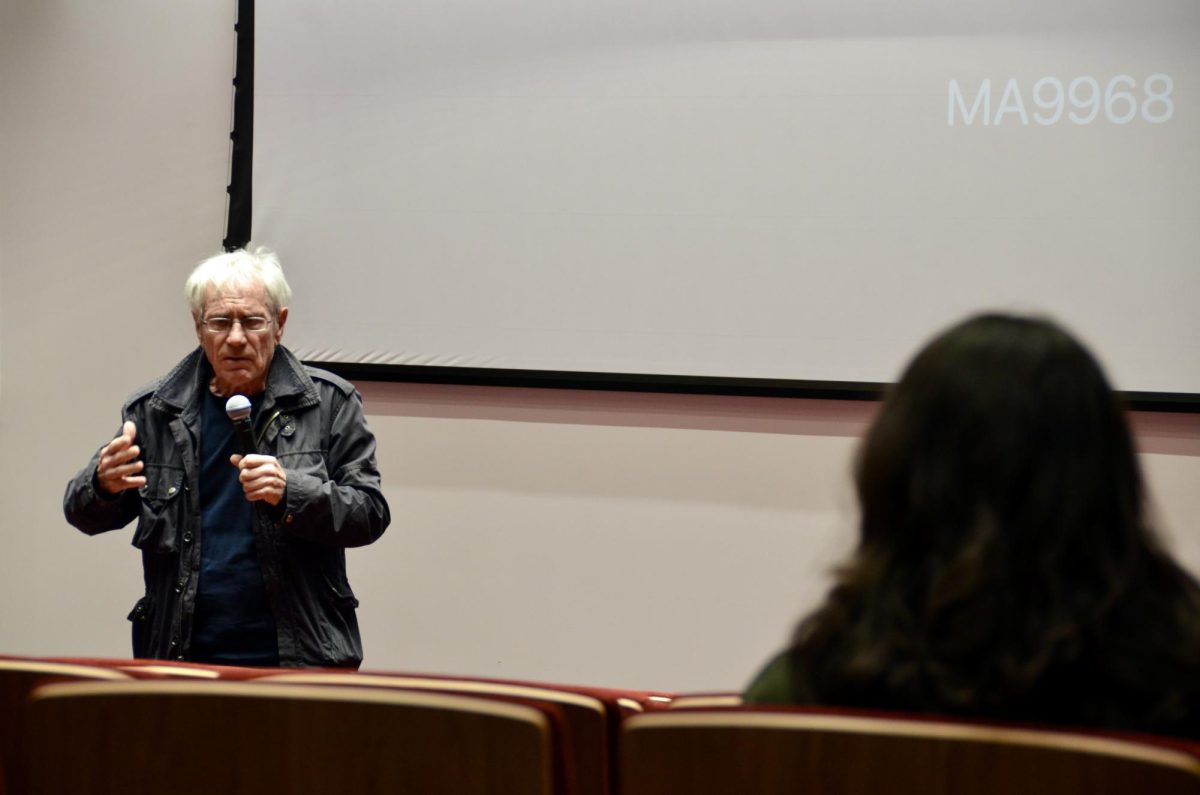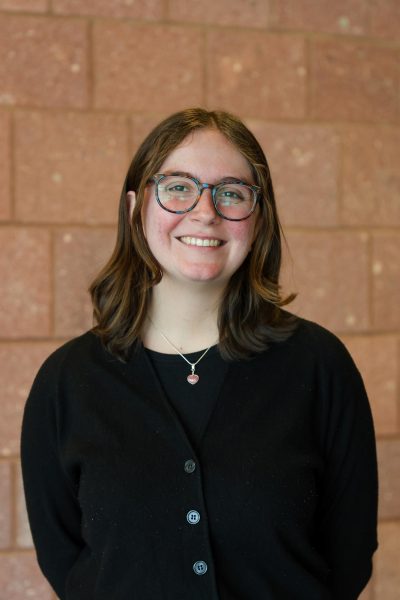Želimir Žilnik, a renowned Serbian film director and a pioneer of the Yugoslav Black Wave film movement of the 1960s and 70s, came to Grinnell for a screening of a selection of his films. His short films are said to engage critically with political and social conflict, capture the lives of people on the margins and serve as an inspirational tool for students aspiring to work in film to learn from.
The film screening on Monday, Oct. 23 was hosted by the Grinnell College Film Society and co-sponsored by the Innovation Fund and Department of Film and Media Studies. Hosted in the ARH Auditorium, the 6:30 p.m. reception was followed by a 7 p.m. showing of five of Žilnik’s short films, all of which were made in the first seven years of his career.
The films shown, Newsreel on Village Youth, Winter; Unemployed; June Turmoil; Black Film and Uprising in Jazak, depict the lives of Yugoslavians as they seek employment, struggle with homelessness, engage in revolts and resistance, grapple with grief and much more.
Assistant Professor of Studio Art Nicky Tavares, film and media studies concentration chair and founder and curator of the Grinnell College Film Society, organized the film screening.
In an email to the S&B, Tavares wrote that narrowing down and selecting just a few films from Žilnik’s body of work was not easy. “In the end I settled on his early short films because I felt students would be inspired by what he was able to accomplish with a small budget, skeleton crew, and strong clear vision.”
Žilnik was born into a concentration camp in Niš in 1942, and his communist activist parents were killed by members of the Chetnik guerilla forces. For most of his life, he grappled with social and political conflicts, eventually engaging with film to critique the communist ideals of Yugoslavia.
In the early 1970s, due to intense political backlash from his films, Žilnik moved to West Germany, where he captured Yugoslav life, focusing on the experiences of Yugoslavian immigrants and how they adapted to German language and culture. He eventually moved back to Yugoslavia, where he worked mostly in television, finding he could reach more people with his work than before.
Over the span of his career, he has made over 50 films, including feature films, documentaries and TV films. His works speak to the people on the margins in Yugoslavia, focusing on housing insecurity, sexuality, unemployment, immigration, workers’ rights, resistance movements and the social and political turmoil following the post-socialist state in the 1990s. His work has been shown at film festivals across the world, including the Berlin International Film Festival where he won the Golden Bear for his film Early Works in 1969.
In addition to the film screening, Žilnik also answered student questions at a lunch event organized by Professor Tavares for her intro to film studies students and the Film and Media Studies Student Educational Policy Committee (SEPC).

At the lunch, Žilnik discussed his filmmaking process, and how access to technology and quality cameras has changed drastically over the years. He said that accessing 35mm cameras was both difficult and expensive in a small country like Yugoslavia, and the film had to be processed over many days in a laboratory and eventually shown in a cinema. Speaking to the current film students, he emphasized the importance of the range of possibilities and opportunities they have today — especially being able to use their cell phones as cameras.
“Filmmaking is quite different than any other art,” he said. In comparison to writing, music, painting or other disciplines, he said that filmmakers “do not make our final product alone.”
Žilnik’s visit to campus was part of the Grinnell College Film Society’s film series and visiting filmmaker program. Tavares wrote the program was “designed to serve as creative growth serum and interdisciplinary glue for the new Film and Media studies concentration.”
Tavares said she first heard of Žilnik’s work many years ago, and that his work inspired her own filmmaking. “Seeing his early films reinvigorated my own film practice,” she wrote, “reminding me of how film can be used as a radical tool for knowing people and exploring social and political realities.”
She wrote that she did all she could to bring him to Grinnell. “I felt certain that his remarkable journey in film would inspire students and nurture our burgeoning Film and Media Studies concentration.”
As Grinnell’s rural location limits the film industry exposure students can receive, Tavares discussed the importance of the Grinnell College Film Society’s program to bring in filmmakers with diverse perspectives.
“I hope Žilnik will be the first of many filmmakers to stop in Grinnell on film tours through the Midwest,” she wrote.
More information about Žilnik and his films can be found on his website: https://www.zilnikzelimir.net/index.php/




















































